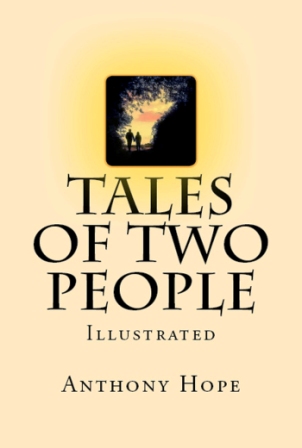More Search Results...
Sir Anthony Hope Hawkins, better known as Anthony Hope (1863 –1933), was an English novelist and playwright. He was a prolific writer, especially of adventure novels but he is remembered best for only two books: The Prisoner of Zenda (1894) and its sequel Rupert of Hentzau (1898). These works, “minor classics” of English literature, are set in the contemporaneous fictional country of Ruritania and spawned the genre known as Ruritanian romance. Zenda has inspired many adaptations, most notably the 1937 Hollywood movie of the same name.
Hope trained as a lawyer and barrister, being called to the Bar by the Middle Temple in 1887. He had time to write, as his working day was not overly full during these early years and he lived with his widowed father, then vicar of St Bride’s Church, Fleet Street. Hope’s short pieces appeared in periodicals but for his first book he was forced to resort to a self-publishing press. A Man of Mark (1890) is notable primarily for its similarities to Zenda: it is set in an imaginary country, Aureataland and features political upheaval and humour. More novels and short stories followed, including Father Stafford in 1891 and the mildly successful Mr Witt’s Widowin 1892. He stood as the Liberal candidate for Wycombe in the election of 1892 but was not elected. In 1893 he wrote three novels (Sport Royal, A Change of Air and Half-a-Hero) and a series of sketches that first appeared in the Westminster Gazette and were collected in 1894 as The Dolly Dialogues, illustrated by Arthur Rackham. Dolly was his first major literary success. A.E.W. Mason deemed these conversations “so truly set in the London of their day that the social historian would be unwise to neglect them,” and said that they were written with “delicate wit [and] a shade of sadness.”
The idea for Hope’s tale of political intrigue, The Prisoner of Zenda, being the history of three months in the life of an English gentleman, came to him at the close of 1893 as he was walking in London. Hope finished the first draft in a month and the book was in print by April. The story is set in the fictional European kingdom of ‘Ruritania’, a term which has come to mean ‘the novelist’s and dramatist’s locale for court romances in a modern setting.’ Zenda achieved instant success and its witty protagonist, the debonair Rudolf Rassendyll, became a well-known literary creation. The novel was praised by Mason, literary critic Andrew Lang, and Robert Louis Stevenson.
Tales of Two People
COMMON opinion said that Lord Lynborough ought never to have had a peerage and forty thousand a year; he ought to have had a pound a week and a back bedroom in Bloomsbury. Then he would have become an eminent man; as it was, he turned out only a singularly erratic individual.
More info →
































